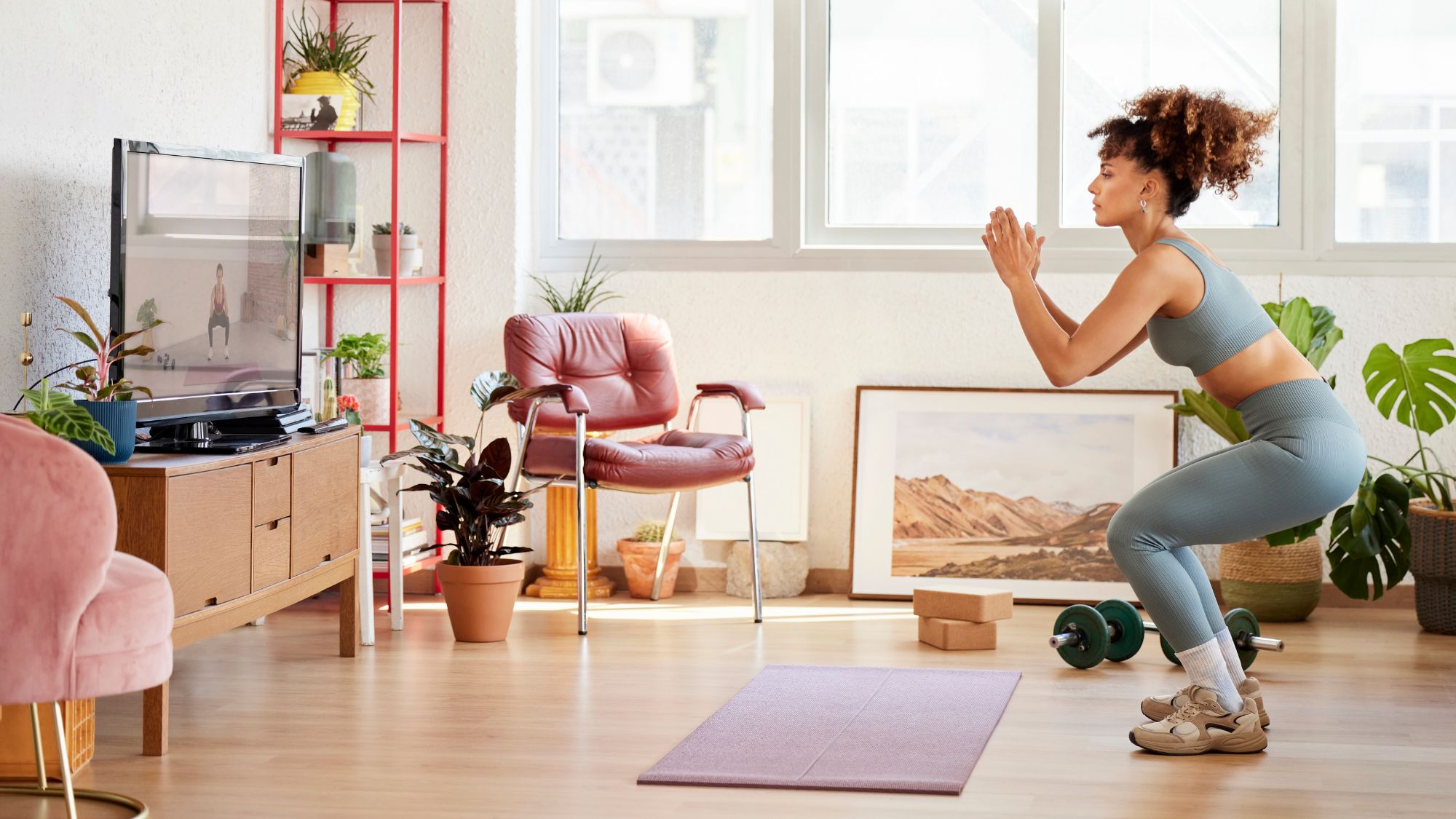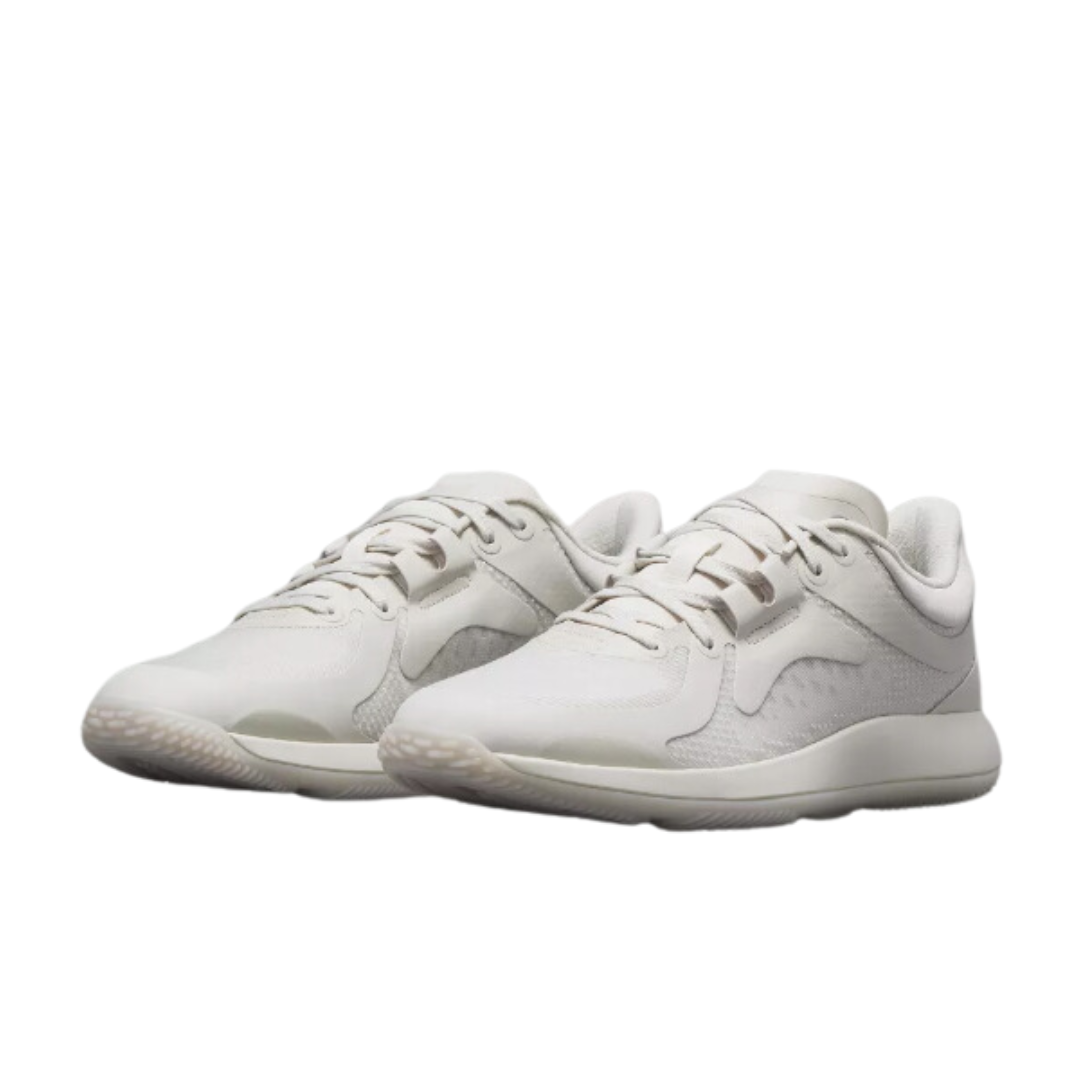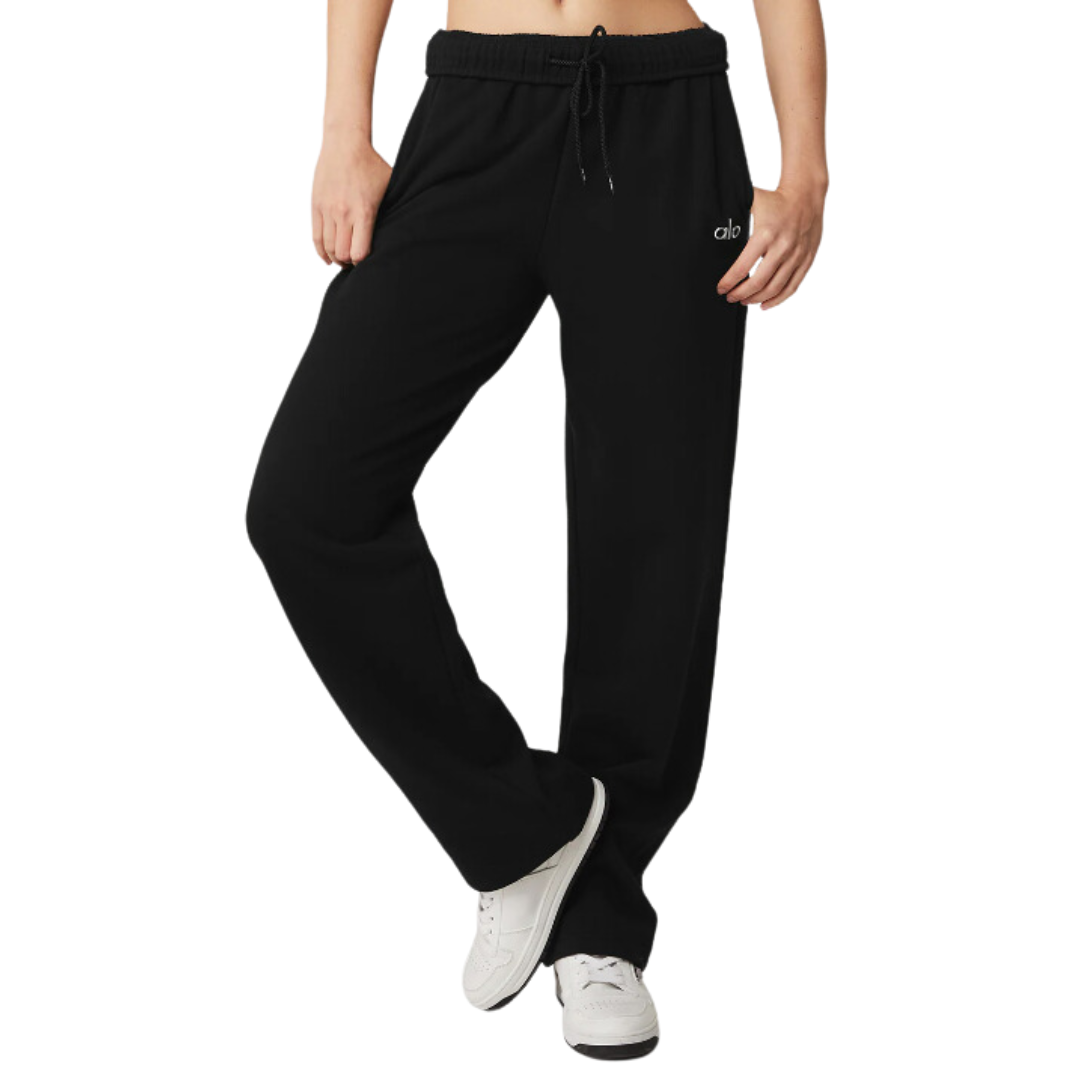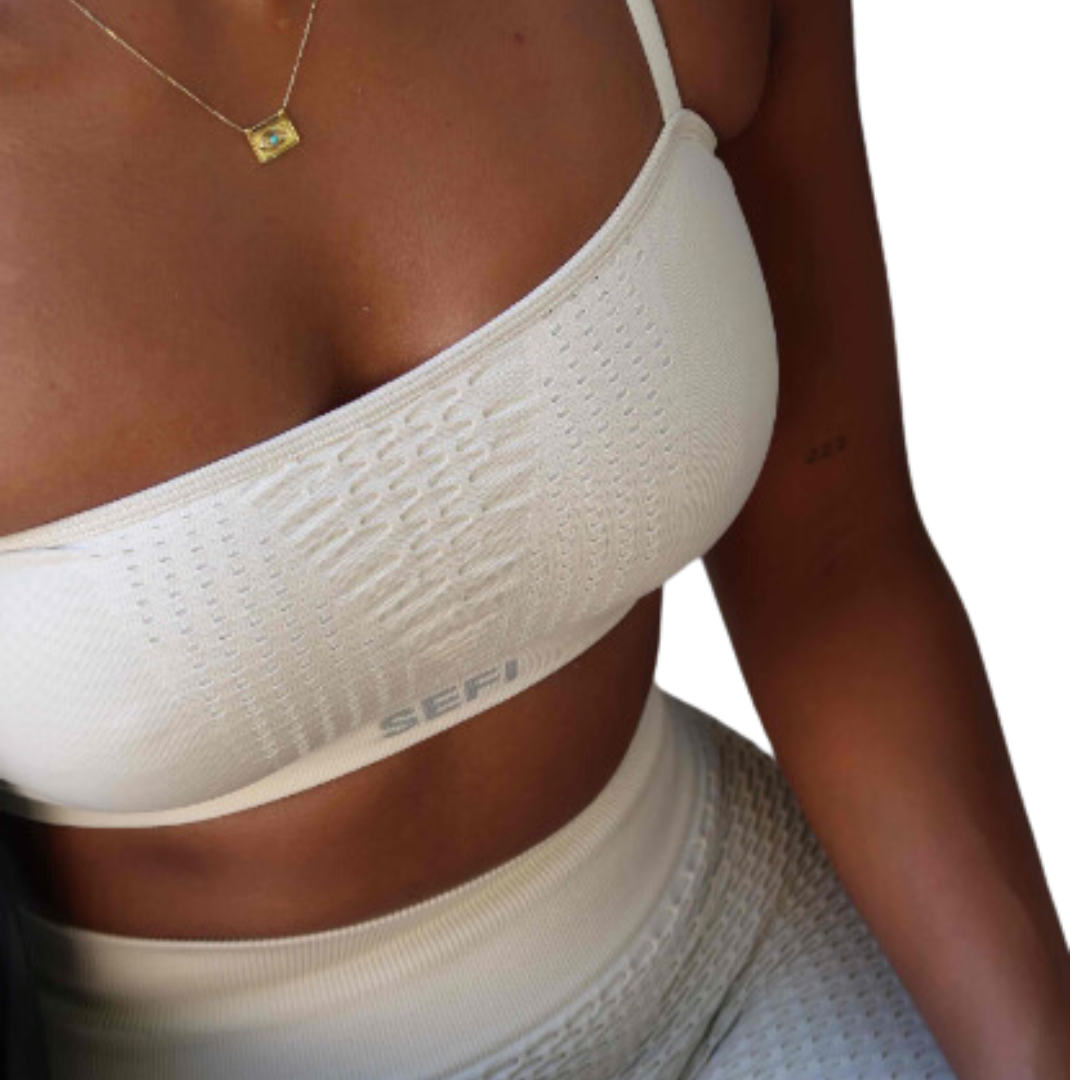Squats are hailed as the most elite of workout moves - so, are they effective for improving balance, muscle and posture?
Your need-to-knows.


Look at pretty much any workout programme and we can almost guarantee there it will include some variation of a squat. But have you ever wondered, how effective squats are for your overall health and fitness? Or if you'd be better off spending your quality gym time on another exercise?
Well, squats are associated with improved strength, muscle, power and endurance. One 2020 study, in which some participants performed squats as their only lower-body exercise for three days a week for six weeks, increased their maximum strength by 5.5%.
"Squats are a compound movement, which means that you're using multiple muscle groups at once," says Lianna Swan, personal trainer and community manager at Shreddy. "Squats use your hamstrings, glutes, calves, quads and core, which means multiple muscles are being challenged. It's super, super effective as an all-around workout."
So, Swan is a fan. As am I - a fitness instructor and health editor of over seven years who has squats as a staple in her workout routine.
But squats can be more or less effective depending on how you perform them and what your goals are. More on that from the experts, plus whether you should be incorporating them into your weekly workouts, below. If you're after more content on squats, don't miss our guides to bodyweight squats orviral wall squat challenge and pistol squat challenge.
How effective are squats for strength, muscle and mobility? Your guide
What are the benefits of doing squats regularly?
"Squats are effective because they're so efficient," reminds Swan. Essentially, the more muscles you use in an exercise, the harder your body will be working, meaning you'll be expending more energy and building multiple muscles in just one rep. Compare that to, say, a leg extension, where there's only one main muscle being used (quads) and less cardiovascular exertion, making it a less efficient exercise.
And squats are effective for longer term gains, too. "If your focus is to build lower-body strength, squats are by far one of the most beneficial exercises that you can do," says Swan. Because squats are a compound move, supported by multiple muscles, you can tend to lift heavily on them - challenging how much you can lift is the key to building muscle and strength.
Celebrity news, beauty, fashion advice, and fascinating features, delivered straight to your inbox!
"Squats also challenge your stability, especially when you're doing barbell or dumbbell squats. In those, you need to your core muscles to help stabilise which makes them more effective than a seated exercise like a less press," says Swan.
"Squats are also super functional. Most people would really benefit from striving towards being able to do a full squat, whatever their age. If you think about when you were a baby, you'd be able to pop into the most perfect squat. But as we start to age, being able to move through that full range gets harder. Keeping that range of motion will keep your joints healthy and make life easier throughout life."
What is the most effective type of squat?
"The most effective type of squat is the one you can do confidently through a full range of motion," notes Swan. Indeed, the deeper you squat, the greater the muscle development, per a 2019 study.
If you struggle with your squat depth, you can make your squats more effective and improve how low you can squat by improving your mobility. That can be done by squatting more often, or working on hip and ankle mobility with practises like yoga. "You can also elevate your heels in squats by standing on plates, for instance, which can make squatting to a lower range more comfortable," says Swan.
The type of squat you choose will also impact the effectiveness. If your goal is to target your glutes, you're better off performing a squat with a barbell on your back or standing in a sumo (wide) position. "By comparison, a front squat will engage your core and quads more," says Swan.
For beginners, the bodyweight squat is the most effective way to start. "Before adding weight, I would check you can do a bodyweight squat, to 90 degrees and back up again, comfortably," says Swan.
The most effective way to do squats is by perfecting your form - this will ensure you avoid injury as well as target the correct muscles, so working on bracing your core, keeping your knees open and back straight is vital.
Finally, the best way to keep your squats effective is to progressively overload. "That means increasing the weights over time to keep challenging the muscles," says Swan. "That might mean progressing from bodyweight squats to goblet squats and eventually barbell squats, or just increasing the weight you're using over time."
What's the most effective set and rep range for squats?
Another way that you can change the effectiveness of your squats is by working on the sets and rep range.
"The best rep range really just depends on your goals and what you're aiming for with this. If your aim is muscle hypertrophy, which is purely building muscle, then you should aim for three to four sets of eight to 12 reps.
"If you're purely looking for strength and or power, aim for three to five sets of anything from one to six reps. And if muscular endurance is your goal - you're wanting to train your muscles to withstand load for a long time - then you'll be using a lighter weight for two reps of 15-20 reps," says Swan.
How to do a traditional squat for best results
- Start with your feet flag on the ground, with your feet placed about shoulder width apart and facing forwards.
- Focusing on keeping your shoulder blades, core and glute muscles engaged, begin to hinge at your hips, slowly driving your hips backwards and lowering your glutes towards the floor.
- Sit down fully into your squat position, making sure that your knees are in line with your toes.
- Boosting your weight from your heels, push back up to standing, engaging your glutes when you reach the top.
I've been squatting for over eight years now - and swear by the move for maintaining my strength
Ally Head is the Senior Health Editor at Marie Claire UK. She's been squatting regularly for over eight years now and swears by the simple compound move for boosting full body strength.
"I first learnt to squat around eight years ago now, while training for a Women's Health feature. I worked out with a qualified personal trainer, Leigh, three to four times a week, who really helped me to nail the basics of the move. By the end of the ten-week challenge, I'd built up to a 65kg barbell back squat - no mean feat, at 5 foot 1."
"I learnt a lot from the experience, but the importance of good form was my key takeaway, and Leigh really helped me to focus on engaging my core, glute and shoulder muscles, as well as focusing on my breathing to really make the most of the move."
"Eight years on, and I now strength train at home rather than at the gym. I'm more realistically able to squeeze these in, plus I find them an easier way to maintain a strong foundation and, in turn, support my running. The squat is a move I've always returned to as it's simple and effective. I found it easy to master and hard to forget how to do (key for those early mornings when you're in a rush to get your workout banked before a busy day at the office)."
"Regularly incorporating squats and other compound moves into my workout routine has not only injury-proofed my body for the distance running I do but built my muscles and strength, too.
MC-approved gym kit for squat day

Chloe Gray is a freelance journalist who writes and talks about health, fitness, and wellbeing through a feminist lens. She was part of the launch team for Stylist magazine's fitness brand, Strong Women, and has written for i news, Women's Health, Red magazine, Good Housekeeping, Refinery29, and more. She's all about building mental and physical strength, eating delicious food that fuels you well, and making the fitness industry more accessible and enjoyable. She's also a qualified fitness trainer and research nerd, so you can be sure everything you read is backed by proper science.


